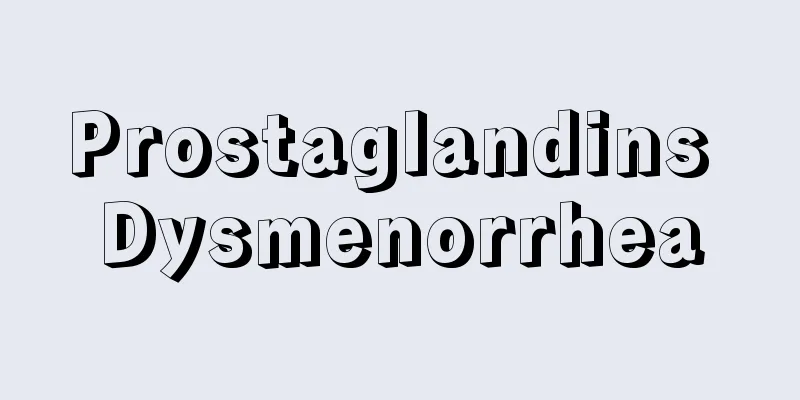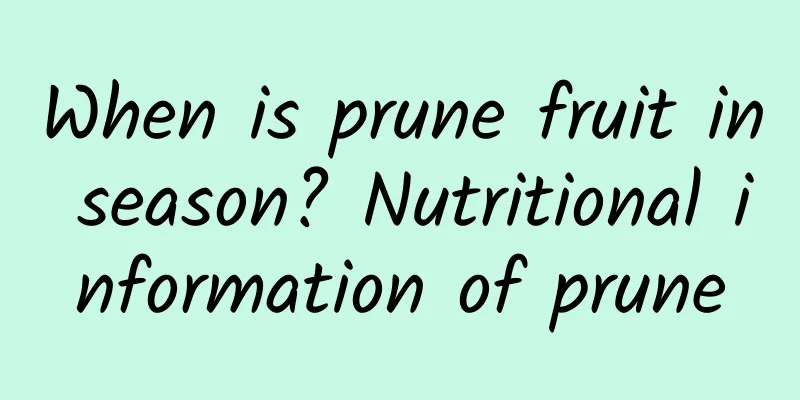Prostaglandins Dysmenorrhea

|
Women's menstruation is a very torturous physiological phenomenon, because on the first day of menstruation, most women experience dysmenorrhea, and severe dysmenorrhea can even cause shock. However, most women experience dysmenorrhea, but many people do not know the principle behind it. Dysmenorrhea is mainly caused by prostaglandins in the body. Today I will introduce to you dysmenorrhea caused by prostaglandins. 1. The relationship between prostaglandins and dysmenorrhea It can be said that prostaglandins are closely related to women. Many women experience obvious dysmenorrhea during menstruation, most of which are caused by prostaglandins. When a woman has her period, the endometrium thickens under the action of estrogen. During the thickening process of the endometrium, prostaglandins are produced, which stimulate the contraction of smooth muscles. When prostaglandins are released by shed endometrial cells, they cause uterine contractions, leading to dysmenorrhea. You can understand it this way: menstruation is bleeding caused by the shedding of the endometrium. During the menstrual period, in order to allow the menstrual blood to be discharged smoothly, the body will automatically secrete prostaglandins. When the prostaglandins are secreted too much, the uterus will contract excessively, leading to dysmenorrhea. In addition, there may also be symptoms such as lower back pain, chest congestion, nausea, diarrhea, headache and shoulder pain. 2. How to relieve dysmenorrhea caused by prostaglandins 1. Take painkillers For dysmenorrhea caused by prostaglandins, doctors generally recommend that patients take painkillers to relieve the symptoms, because painkillers can inhibit the secretion of prostaglandins, thereby relieving the symptoms of dysmenorrhea. However, this treatment method only temporarily relieves the symptoms of dysmenorrhea and cannot cure dysmenorrhea. 2. Control your diet The more prostaglandins are secreted, the more severe the dysmenorrhea will be. The amount of prostaglandins secreted is also related to a person's daily diet. It is recommended to control your diet during menstruation and avoid eating high-fat and high-sugar foods, because these two types of substances will promote the secretion of prostaglandins. Therefore, eat less or no sweets, cakes and other foods in normal times. 3. Eat more vegetarian food Vegetarian foods, such as beans and vegetables, are low in fat. These foods can regulate endocrine system and reduce the secretion of prostaglandins to relieve dysmenorrhea. Legumes, in particular, contain natural estrogen, which can effectively inhibit dysmenorrhea. |
<<: How does breast augmentation with implants work?
>>: What to do if you have pubic pain during pregnancy
Recommend
Revealed: It turns out that rhinitis makes people ugly in this way!
When the editor saw the topic "Rhinitis can ...
What to do if you have a cold and runny nose during pregnancy
The physical health of pregnant women is what the...
How to choose the hottest pepper? How to eat pepper without getting irritated
There are hot foods and cold foods in nature. Chi...
What to do if you have cervical erosion and bleeding during ovulation
In fact, ovulation bleeding has nothing to do wit...
What should I do if I have gynecological diseases during breastfeeding? Rapid treatment is key
If you find yourself suffering from gynecological...
What to do if you have stomach pain during your fourth month of pregnancy
Generally speaking, the fourth month of pregnancy...
Afraid of heart disease, experts tell you how to check
In the outpatient clinic, we often encounter pati...
Doing these things can effectively prevent liver cancer
Primary liver cancer (abbreviated as liver cancer...
Being fat is harmful to everything! Is it reliable to lose weight by eating only meat and no staple food?
Author: Chen Wei, Chief Physician, Peking Union M...
What to do if your menstrual flow is light after giving birth
There are many reasons for scanty menstruation, s...
Is it necessary to repair the pelvic floor?
The pelvic cavity is very important for women, bu...
What to do if you have backache and stomach pain in early pregnancy
There will be many uncomfortable symptoms during ...
It may be lurking around you! Beware of fake alcohol that can harm people
Mr. Wang usually likes to drink and has a few cup...
What is the safe period for girls?
When is the safe period for women? A woman's ...
Freezing, rain and snow, please keep this "health reminder"
On December 18, Nanjing was hit by moderate to he...









